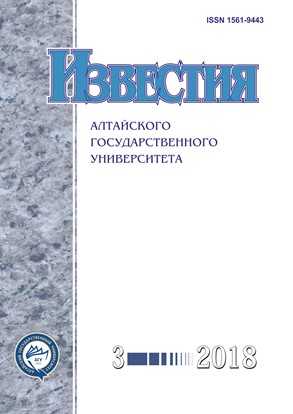Material-Processual Aspects of Limitation of Incomplete Legal Capacity of Minors by the Legislation of Russia and Kazakhstan
Abstract
The restriction or deprivation of the right to independently dispose of income is a measure of protection of the rights and interests of minors. Explicit unreasonable disposal of income means the acquisition of goods, work and services, as a result of consumption of which harm is caused to the health, physical, mental, spiritual and moral development of the minors. Forming a child's behavior is the responsibility of the parents who have the right to assist them in the exercise of parental rights. Appeal to the court must be an extreme measure. Depending on the actual circumstances, taking into account the characteristics of the minor and his needs, the analysis of intra-family relations, the court, on the basis of the evaluation category “reasonableness”, makes a decision either on depriving or limiting the right. The minor disposes of his income with the consent of the legal representatives or the trustee. In this case, the right to receive scholarships, wages and other income is preserved. Restriction of the right is an urgent measure, and the minor himself must be entitled to demand the repeal of his right. The change in the incomplete civil legal capacity of a minor affects his legal status.
DOI 10.14258/izvasu(2018)3-23
Downloads
Metrics
References
Иоффе О.С. Советское гражданское право. — Л., 1958.
Шершеневич Г.Ф. Учебник русского гражданского права. — М., 1995.
Букшина С.В. Правосубъектность несовершеннолетних: необходимость реформирования гражданского законодательства // Актуальные проблемы российского права. — 2015. — № 5.
Официальный интернет-портал правовой информации [Электронный ресурс]. — URL : http://www.pravo.gov.ru, 04.06.2012.
Распоряжение Правительства РФ от 25.08.2014 № 1618-р // Официальный интернет-портал правовой информации [Электронный ресурс]. — URL : http://www.pravo.gov.ru, 29.08.2014.
Гражданский процесс : учебник для вузов / под ред. М.К. Треушникова — 5-е изд., перераб. и доп. [Электронный ресурс]. — URL : // http://www.consultant.ru
Бюллетень Верховного Суда РФ. — 2015. — №8.
Ситдикова Л.Б. Несовершеннолетний как участник гражданского процесса // Арбитражный и гражданский процесс. — 2011. — № 4.
Вишнякова С. М. Профессиональное образование : Словарь. Ключевые понятия, термины, актуальная лексика. — М., 1999.
Российское гражданское право : учебник : в 2 т. Т. I: Общая часть. Вещное право. Наследственное право. Интеллектуальные права. Личные неимущественные права / отв. ред. Е.А. Суханов. — 2-е изд., стереотип. — М., 2011.
Казихнова С.С., Галахтин М.Г. Предпринимательская деятельность несовершеннолетних // Актуальные проблемы российского права. — 2016. — №9(70).
Copyright (c) 2018 С.К. Амандыкова, С.В. Воронина

This work is licensed under a Creative Commons Attribution 4.0 International License.
Izvestiya of Altai State University is a golden publisher, as we allow self-archiving, but most importantly we are fully transparent about your rights.
Authors may present and discuss their findings ahead of publication: at biological or scientific conferences, on preprint servers, in public databases, and in blogs, wikis, tweets, and other informal communication channels.
Izvestiya of Altai State University allows authors to deposit manuscripts (currently under review or those for intended submission to Izvestiya of Altai State University) in non-commercial, pre-print servers such as ArXiv.
Authors who publish with this journal agree to the following terms:
- Authors retain copyright and grant the journal right of first publication with the work simultaneously licensed under a Creative Commons Attribution License (CC BY 4.0) that allows others to share the work with an acknowledgement of the work's authorship and initial publication in this journal.
- Authors are able to enter into separate, additional contractual arrangements for the non-exclusive distribution of the journal's published version of the work (e.g., post it to an institutional repository or publish it in a book), with an acknowledgement of its initial publication in this journal.
- Authors are permitted and encouraged to post their work online (e.g., in institutional repositories or on their website) prior to and during the submission process, as it can lead to productive exchanges, as well as earlier and greater citation of published work (See The Effect of Open Access).








